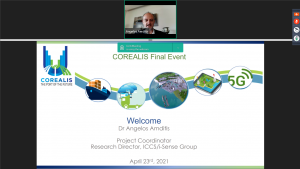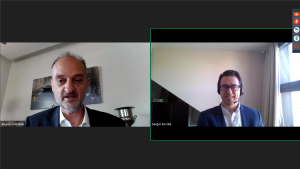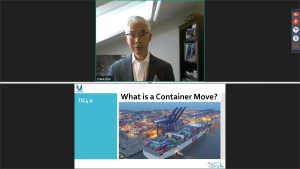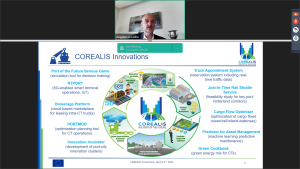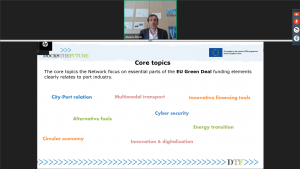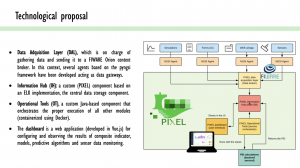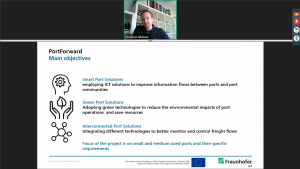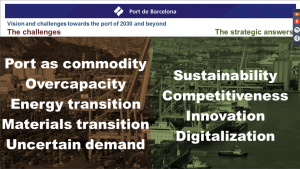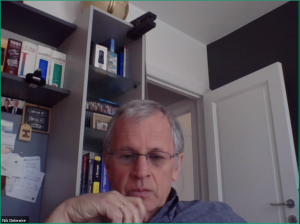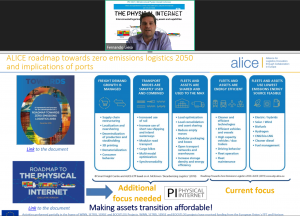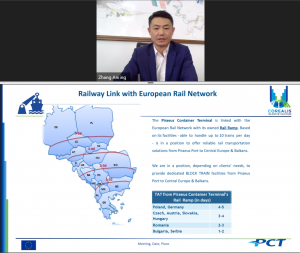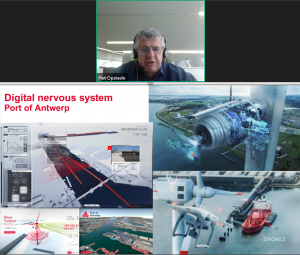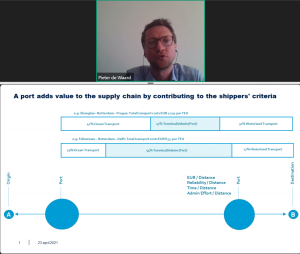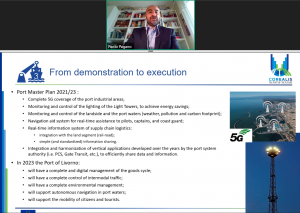The COREALIS project, funded by EU H2020 programme, worked on the topic of the Port of the Future from May 2018 till the project end in April 2021. During this time, COREALIS team worked towards the vision of the Port of the Future by proposing a strategic, innovative framework, supported by disruptive technologies, including Internet of Things (IoT), data analytics, next generation traffic management and emerging 5G networks, for cargo ports to handle upcoming and future capacity, traffic, efficiency and environmental challenges.
With a total budget of 5.1 million Euros funding by the European Commission, 17 partners from 10 European and associated Countries worked together and joined their expertise to contribute to the vision of a more environmentally friendly, socially sustainable and financially viable port of the future. The proposed beyond state-of-the-art innovations, targeted to increase efficiency and optimise land use, while being financially viable, respecting circular economy principles and being of service to the urban environment. These innovations were implemented and tested in real operating conditions in 5 Living Labs – top European ports, the Piraeus port, the Valencia port, the Antwerp port, the Livorno port and the Haminakotka port.
At the end of April 2021, COREALIS sailing journey ended with remarkable research achievements that were widely disseminated to the scientific and industrial community during a really fruitful final conference.
About COREALIS Final Conference
COREALIS Final Conference was held virtually on the 23rd of April 2021 so as to secure all participants’ safety and health. The conference was very well attended, reaching up to 150 participants.
Dr. Angelos Amditis, COREALIS project coordinator, warmly welcomed all participants and landmarked the beginning of the meeting. COREALIS had also the pleasure to welcome on board its project officer at CINEA, Mr. Sergio Escriba, who highlighted that COREALIS project precisely addressed the pillars of climate, energy and transport challenges in the port environment, and he gave special attention to the crucial momentum for the stakeholders’ feedback for the Port of the Future. The opening session was concluded with the presentation of Mr. Frank Kho, Chief Executive Officer at Terminal Industry Committee 4.0, explaining how the cargo handling industry can get the full potential and embrace the 4th industrial evolution.
The next two sessions were devoted to the presentation and discussion of the COREALIS palette of port-driven technological and societal innovations represented by COREALIS technical partners namely SGS, VTT, MARLO, ERICSSON, NEC, MOSAIC, DELTARES, VPF and DYNNIQ.
The next session was focused on the Port of the Future Network, where representatives from the EU sister projects DocksTheFuture, Pixel and PortForward shared their projects’ vision towards ports of the future. Mr. Alexio Picco (CIRCLE), Docks The Future coordinator presented the main project outcomes and achieved goals. Mr. Carlos Palau (UPV), coordinator of Pixel project, explained how Pixel aligns with COREALIS’s concept of the future port. Finally, the PortForward coordinator, Mr. Christian Blobner (Fraunhofer) presented the use cases and technologies developed and tested in the project towards a holistic approach to a smarter, greener and more sustainable port of the future ecosystem.
Special part of the day was the interactive and constructive high-level discussion with prominent invited guests from several EU organisations (CNIT, European Inland Waterway Transport Platform-IWT, Piraeus Container Terminal-PCT) and ports (Port of Antwerp, Port of Barcelona, Port of Rotterdam), who elaborated on their ‘vision and challenges towards the port of 2030 and beyond’, by giving lightning talks.
The project coordinator concluded the day by summarizing COREALIS achievements and by highlighting that ‘COREALIS has set a basis, but there is still a long way towards achieving operational efficiency and climate neutrality as set by the European Green Deal’.
More information about the COREALIS Final Conference can be found here.
The full press release is available here.
The Greek press release is also available here.
PHOTO GALLERY
 This project has received funding from the European Union’s Horizon 2020 research and innovation programme under Grant Agreement no 768994. Content reflects only the authors’ view and European Commission is not responsible for any use that may be made of the information it contains.
This project has received funding from the European Union’s Horizon 2020 research and innovation programme under Grant Agreement no 768994. Content reflects only the authors’ view and European Commission is not responsible for any use that may be made of the information it contains.

